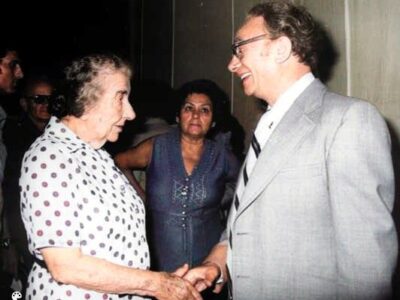Fortunately for lovers of fiction, Warwick Publishing, a Toronto-based publishing house that usually publishes non-fiction, has departed from its specialty to present Marrow and Other Stories, a debut collection of short stories from Toronto author Nora Gold.
Gold, a professor at McMaster University, offers seven literary creations of varying lengths in the book. They range from the six-page story Marrow, which previously appeared in the literary journal Parchment, to the 87-page novella Flesh, which shows that Gold, at her best, can be as heart-warming and delightful as Ann Tyler or Anita Brookner.
As a rule, Gold seems to shine when given more room in which to work. The shorter pieces are interesting but more cerebral than moving. The three longer pieces — Lessons of the Rabbi, Final Movement, and Flesh — reveal a dynamic and masterful authorial imagination that seems to stem directly from the heart.
Her themes center around women, in particular Jewish women, whose concerns and conflicts involve love and loss, and the painful search for epheremal ideals that seem to slip away between girlhood and adulthood.
Lessons of the Rabbis is a riveting coming-of-age piece in which a rabbi and his family offer emotional support and shelter to Carla, a teenaged student from an abusive home. A transgression by the rabbi leaves Carla feeling abandoned, homeless and beyond redemption, like someone who has crashed to the bottom of a heavenly ladder and feels she will never rise again.
Another central character confronts her illusions about love’s purity in the first-person story, Final Movement. Although somewhat convoluted, the tale reflects Gold’s central thesis that the physical realities of the world interfere with the delicate, other-worldly purity of romantic love, which must exist only for the angels.
This notion emerges most clearly in Flesh, a title that suggests that all flesh is heir to a diminishment of the holy dream of perfect love. This remarkable story focuses on two cousins, Eve and Pearl, and their private discussion during the shiva for Pearl’s mother. Set in Montreal, it is filled with warmth, humor, revelation and pain.
Pearl, dysfunctional since her teenaged years, is wasting away. She rarely ventures from her bedroom and almost never goes outside. Eve, a mother, successful professional and former friend and confidante to Pearl, climbs upstairs during the shiva to commune with her cloistered cousin.
Pearl soon reveals that even in her isolation, she had experienced a love relationship with Ricky, the national director of CARE, Canadians for Animal Rights Education. The touching story-within-a-story of Pearl’s intense affair with Ricky unfolds.
But caring for Pearl, alas, is something that Ricky proves incapable of in the long run. When she feels loved, Pearl eats and puts some flesh on her bones, but wastes away again after Ricky abandons her. This story is less pessimistic than Lessons of the Rabbi, however, since Pearl ultimately finds enough reason to resume living.
Flesh shows Gold at the top of her powers. The story closes with a vivid and stunning allusion from our ancient literature, demonstrating beyond a doubt that it is Jewish fiction that Gold is producing: not only the characters but the themes reflect an essential Jewish quality.
One finishes this collection of stories wanting more. Gold is a promising writer who deserves a wider audience. ♦
© 1999





